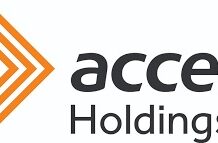Amid weak insurance penetration in Nigeria and challenging business environment, a total of 13 leading insurance companies in the country declared N57.1billion profit before tax in nine months ended September 30, 2023.
This represents a 165 per cent increase over N21.51billion reported in nine months ended September 2022.
The 13 insurance companies are: Cornerstone Insurance Plc, AIICO Insurance Plc, Consolidated Hallmark Insurance Plc, Lasaco Assurance Plc, Linkage Assurance Plc and Sovereign Trust Insurance Plc
Others include: Veritas Kapital Assurance Plc, Coronation Insurance Plc, AXA Mansard Insurance Plc, Mutual Benefits Assurance Plc, Sunu Assurances Nigeria Plc, NEM Insurance and Regency Assurance Plc.
AXA Mansard Insurance, an insurance company that provides life and non-life insurance products and services to individuals and institutions across Nigeria, followed by Cornerstone Insurance and AIICO Insurance generated the highest profit before tax in the period under review.
Meanwhile, apart from AXA Mansard Insurance that announced interim dividend declare an interim dividend of 6 kobo per N2 ordinary share, payable to shareholders on December 15, 2023, other listed insurance companies on the Nigerian Exchange Limited (NGX) have failed to reward shareholders with interim dividend, unlike their counterparts in the banking sector.
Out of the N57.1 billion PBT reported by these 13 insurance companies in nine months of 2023, AXA Mansard Insurance contributed 26.44 per cent, while Cornerstone Insurance and AIICO Insurance contributed 20 per cent and 11.8 per cent respectively.
AXA Mansard Insurance in nine months ended September 30, 2023 generated N15.1billion profit before tax, an increase of 471 per cent from N2.65billion reported in nine months of 2022.
AXA Mansard recorded a 44 per cent growth in insurance services to N9.08billion in nine months of 2023 from N6.3billion in nine months of 2022, primarily driven by the growth in insurance revenue. The surge in insurance revenue of AXA Mansard Insurance effectively helped offset the rising costs associated with insurance service expenses; insurance claims, among others.
In the period under review, Cornerstone Insurance declared N11.43billion profit before tax from N621.1million reported in corresponding period, while AIICO Insurance posted N6.75billion PBT in nine months of 2023, representing an increase of per cent from N2.39billion reported in nine moths of 2022.
THISDAY investigation revealed the 13 insurance companies generated N49.88billion profit after tax in nine months of 2023, an increase of 142 per cent from N20.58billion reported in the corresponding period of 2022.
Also, AXA Mansard Insurance led others with about N12.56billion profit after tax in nine months of 2023 from N1.5billion in nine months of 2022, followed by Cornerstone Insurance that declared N10.86billion profit before tax in nine months of 2023 from N622.62million reported in nine months of 2022.
The impressive performance of these companies has impacted on the NGX Insurance Index, making it one of the best-performing indices on the bourse.
As of November 17, the NGX Insurance Index appreciated by 68.44per cent Year-till-Date (YtD) growth of 293.70 basis points.
The National Insurance Commission (NAICOM) in a report disclosed that the insurance sector in the second quarter (Q2) 2023 remained profitable, recording an overall industry net loss ratio average of about 52.9 per cent, this is as the Non-Life segment’s loss ratio stood at 50.5per cent while Life business recorded a net loss ratio of 55.5per cent during the same period.
“The net loss ratio of the overall market average has demonstrated an improved market image at a five points position, compared to the corresponding period.
“However, those were the market average and of the two segments respectively as mentioned while the drivers of the net loss ratio during the period consist of some seven (8) underwriters with a record of 100% and above. Nonetheless, as noted earlier, the overall profitability of the industry and its outlook especially remains good and suitable for gainful returns on investment,” NAICOM disclosed in its insurance market performance report.
The sector is facing series of insurance sector recapitalisation that had been expected to enhance the capacity and size of the industry to underwrite big-ticket risks, deepen penetration and market retention.
The weak laws governing insurance regulation have also made enforcement difficult for the industry regulator.
The Vice Chairman, Highcap Securities Limited, Mr. David Adnori, wished that President Bola Tinubu gave assent to the Consolidated Insurance Bill, which, according to him, will change the face of the insurance sector in Nigeria.
He said the industry has been following through with all the processes, noting that the Bill had gone through both arms of the legislators, and just remaining legislative procedures preparatory to presidential assent.
“We are hopeful that it will receive speedy attention so that the industry can begin to tap into the opportunities provided by the new law, ” he said.
The leadership of Nigerian Insurers Association (NIA) had visited the Chairman of the House Committee on Insurance and Actuarial Matters of the House of Representatives, Honourable Ahmed Jaha.
Jaha had promised to ensure all federal assets are consolidated for easy insurance coverage and that he would work assiduously to see that adequate budgetary provisions are made for the insurance of all government assets.
The Chairman of NIA, Mr. Olusegun Omosehin who led the delegation urged robust collaboration and support on areas that affect the insurance industry whilst seeking enforcement of compulsory insurance laws and insurance of all government assets.
Part of the contents of the proposed bill include: proper definition of recapitalization, which has already been re-established in the Finance Act 2021, and measures to check insurance evaders in a bid to increase insurance penetration and enforcement in the country.
Apart from the industry’s capacity to improve its contributions to the Gross Domestic Product (GDP) and employment creation, it could also provide short and long-term funds for the government for infrastructure development, analysts have said.
Analysts believed that the law, if passed, would change the face of the insurance industry, strengthen it from the weaknesses of the moribund Insurance Act 2003 and place the industry on the global best practices pedestal.
Chief executive officer, Centre for the Promotion of Private Enterprise, Mr. Muda Yusuf stated that for the insurance sector to grow, the Federal Government must increase its budgetary allocations for the sector.
He urged governments at all levels and its agencies to always comply with relevant laws and policies for the growth of the nation’s economy.
“Government should comply with Group Life Insurance in line with National Pension Commission (PenCom) Act 2014; comply with Employers Liability Insurance in line with the Workmen’s Compensation Act 1987; Buildings Under Construction, as provided in section 64 of the Insurance Act 2003,” Yusuf said.























